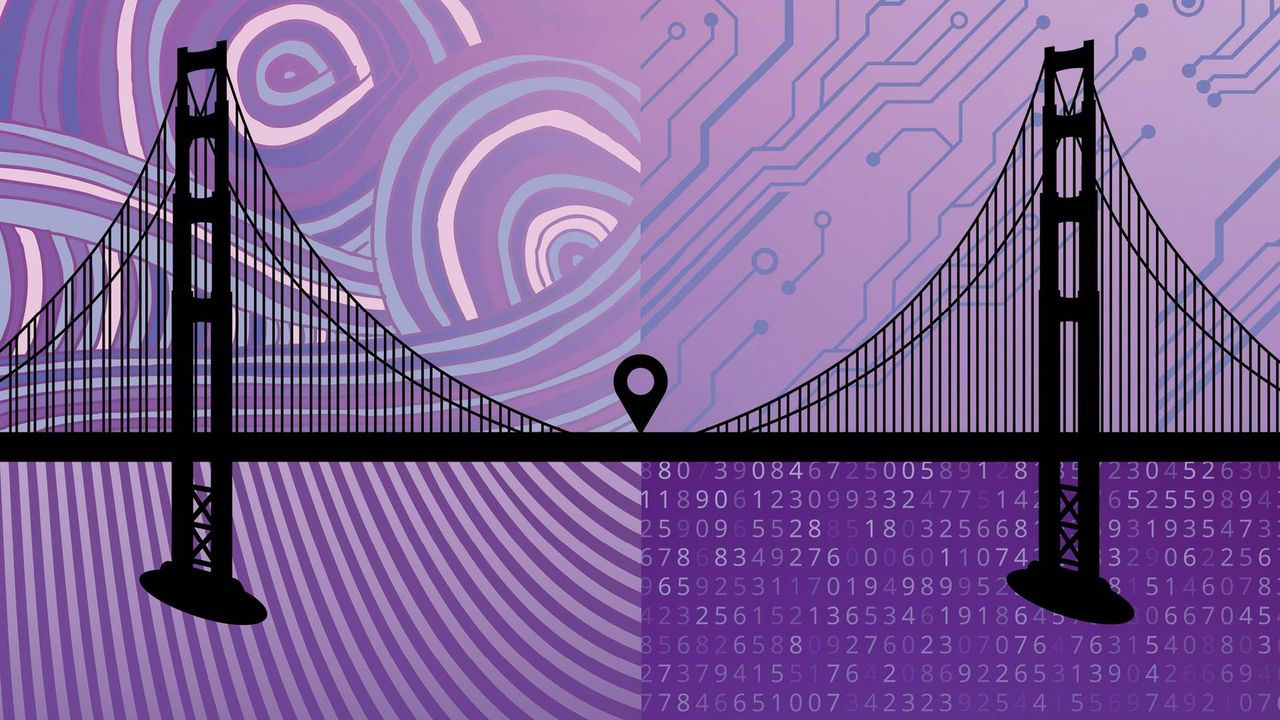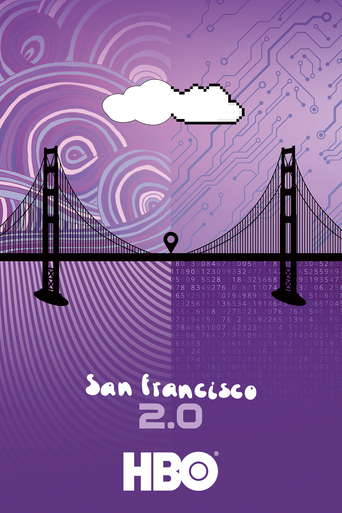Exoticalot
People are voting emotionally.
ReaderKenka
Let's be realistic.
Lollivan
It's the kind of movie you'll want to see a second time with someone who hasn't seen it yet, to remember what it was like to watch it for the first time.
Brendon Jones
It’s fine. It's literally the definition of a fine movie. You’ve seen it before, you know every beat and outcome before the characters even do. Only question is how much escapism you’re looking for.
Prismark10
I thought this documentary started off really badly and only improved when former Labour Secretary Robert Reich made an appearance.Reich makes it clear that gentrification affects many cities around the world be it New York, Vancouver or London and no one is sure as to how to deal with the disparity between the ever increasing wealth gap.I have had the benefit of visiting San Francisco several times, I am well aware that people who work in the city live elsewhere be it Oakland or Mill Valley or some other nearby town. San Francisco is an expensive place to live in despite its hipster or bohemian or counterculture reputation.San Francisco has a homelessness problem or what might be termed as panhandlers more because it has active ways in trying to deal wit the problem leading to administrations from other cities 'pushing' the homeless on to them.I was well aware that in my last visit to the city that tech companies had offices in San Francisco itself, indeed my hotel was not far from Yahoo.However it is unfair to say that tech hipsters have made the city affordable to live it. It was always an expensive city to live in, the new gold rush has just made it easy for developers to tear down old buildings and put new high rise buildings in its place with expensive swanky apartments.Maybe San Francisco is affordable to the middle classes who could not buy a property like the former mayor in the city did in 1972, but buying a property in London is vastly expensive that it was in 1972.At least the documentary made you ask questions which do not have easy answers but it took a while to get there.
calvinnme
...Well, for one, great convenience, for another, businesses that actually have no physical location. This is a short documentary about the tech revolution and how it affected one city - San Francisco.Alexandra Pelosi, daughter of House of Representatives minority leader Nancy Pelosi, directed, wrote, and provided any narration needed for this documentary. She did a great job, partially aided by the fact that this is her hometown, born there in 1970, so she gets the context of the entire situation. The trick is, she communicates that context very well.She goes into the history of San Francisco a bit - how it has long been a haven for the unconventional and progressive, even passing a law against prohibition during prohibition. Then came the tech revolution, starting actually in the late 70's in Silicon Valley. But the young turk techies working in the valley did not want to live there. They wanted to live in hip San Francisco. So high tech companies, wanting to retain their talent, sent buses to pick up their employees in San Francisco and ship them down to the valley every day. As Alexandra says, it didn't take long for those governing San Francisco to see that they might make revenue off of this by offering breaks to Silicon Valley companies that moved into San Francisco. No more long commute for the employees, breaks for the companies, revenue for the city, who could lose? Well it turns out that the great changes have caused the city to risk losing what made it so special.More companies came to San Francisco than was originally dreamed of. With them came an army of invading techie hipsters that drove the price of everything up and drove long existing businesses out. One 20 something man said that, based on the fact that everything interesting happening in the tech world seemed to be happening in San Francisco, he bought a one way plane ticket to San Francisco to find a career there. Another young man had founded Bebo, sold it to AOL for 850 million dollars. When it failed he bought it back for one million to try and make a go of it. That's one thing you see over and over. Freshly minted millionaires whose companies and accomplishments you probably have never heard of.One techie described San Francisco this way - in parts there are no children, no old, just techies sitting around building apps that try to improve everyday experiences such as ordering pizza. Then Pelosi moves on to the displaced residents. One drove Pelosi through a neighborhood once full of children playing in the streets. Now the houses are owned by techie millionaires - nobody else can afford them. Evictions are at an all time high, not because of non payment of rent, but because the rich want to buy the property owner out, tear down the building and either put up housing for the wealthy or a complex for the tech workers.Next Pelosi brings up the problem of regulating companies that have no physical presence - Lyft, Uber, AirBnB - all who have no real employees. People just provide services through them when they can. As a result the pseudoemployees have no job security at all because they have no jobs. The companies they serve are completely unregulated because of their lack of a brick and mortar presence and address. This puts regular hotels who are regulated at a complete disadvantage. Economist Robert Reich joins the conversation towards the end and says that what is happening in San Francisco is a microcosm of what is happening in cities around the world. That as the rich become geographically divorced from the poor and middle class, added to their great political influence, that this cannot end well.Finally, a guy named Alan mentioned in the documentary , representative of the older displaced worker with no training in tech, haunts my thoughts. Working in the finance sector for thirty years until the crash of 2008, unable to find any job since, he ran through his unemployment, then his savings, then finally his 401K. 61 at the time this film was made, he is now penniless, living in a bleak room in an SRO, and avoids this depressing place during the day, only returning at night. I wonder what ever happened to him. As he said to Pelosi "I no longer live in your world. What is normal for you is no longer normal for me".Here Ms. Pelosi followed the first rule of making a good documentary - talk about what you know. Highly recommended.
Michael Bleacher
Political crybaby Pelosi is a nut that didn't fall too far from the tree. This piece has ONLY liberal, bleeding heart trivets reporting on the issue of the gentrification of SFO. It's a slow lament of the death of the culture that was San Francisco, which really has gone away already.This film gets one star for me because it's dishonest. It doesn't even try to present both sides. The only interviews are from ULTRA lefties like former mayor Willie Brown, Gov Jerry Brown, and super lefty Gavin Newsom. Ugh. Just those names should tell you the kind of film you're going to see.The fact that they ignore is, that just as big corporations bussed talent from SFO down to Silicon Valley, so too are the poorer people bussed IN to San Francisco to work. Government meddling like rent control and minimum wage is artificially screwing with the economy and therefore the people.It's hard to feel sorry for the sad sacks in this film who squandered their money trying to live in SFO when they had no income. There are plenty of great places in the USA in which to live that don't have fog, traffic, outrageous taxes, and stifling homeless populations like San Francisco. I just came from there and I won't be back. It's gone. No longer there. So get over it Pelosi and move to someplace that you'll love; like Russia or North Korea. You can have all the leftist rent control there you want. Just one thing missing: Opportunity.Yawn.
Horst in Translation (filmreviews@web.de)
"San Francisco 2.0" is a 39-minute HBO documentary from last year written, directed and narrated by Ammy nominee Alexandra Pelose who is mostly known for her George W. Bush documentary so far. Here she takes a look into her home city San Francisco and what it looks like in the year 2015, in terms of demographic change, population, industry and money. The overall outcome looks pretty negative to me. Newly-rich hipsters and yuppies dominate the society while the old hard-working citizens are long forgotten, like the guy at the end. Still, this is a similar situation as in most big cities right now, no matter where you look. I myself am neither from San Francisco, nor from the United States and maybe that is why I did not find this a very rewarding watch. I just could not get myself to care for this place any more than for any other place in an equally dark situation. Like I wrote in the title, only worth seeing for people from San Francisco.

